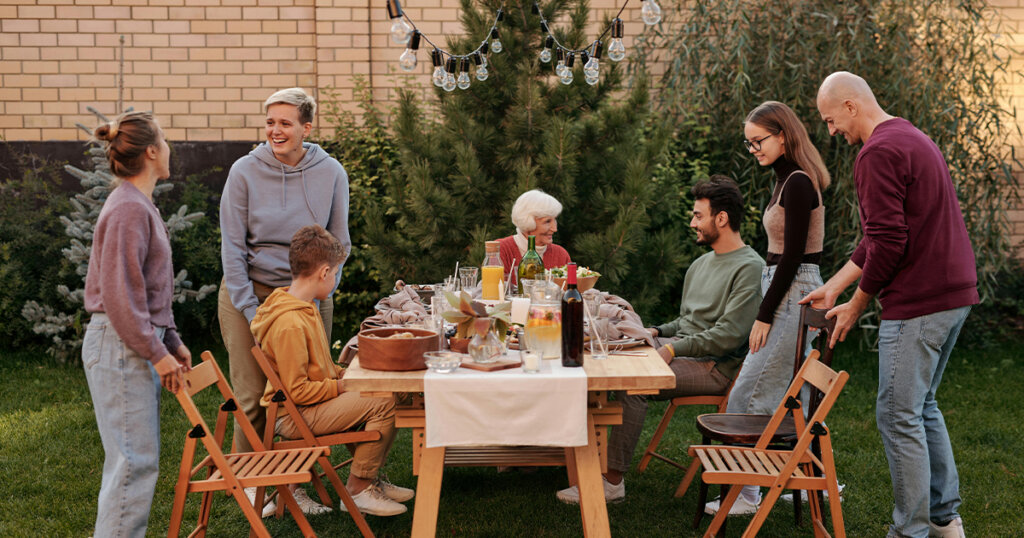Navigating Life in a Group Home without Breaking the Rules
Introduction
Living in a group home can be a unique and rewarding experience. These homes provide a supportive environment where residents can thrive together.
However, much like any community, rules are essential to ensure the safety and well-being of everyone involved. In this post, we will be Navigating Life in a Group Home without Breaking the Rules and why adhering to these guidelines is crucial for maintaining a harmonious living environment.

Whether you are a resident or a caregiver, understanding these dynamics can make a significant difference in your daily life.
Understanding Group Home Rules
The Purpose of Group Home Rules
Group home rules are designed with specific goals in mind. They aim to create a structured environment where residents can feel safe and supported.
Common rules might include curfews, restrictions on visitors, and guidelines for communal living spaces. These rules help maintain order and ensure that every resident’s rights are respected.
Ensuring Resident Safety
One of the primary reasons for having rules in a group home is to ensure the safety of all residents.
For example, curfews are often implemented to prevent residents from being out late at night, which can be dangerous.
Rules about visitor access ensure that strangers do not enter the home without proper vetting, thereby protecting everyone’s safety.
Promoting Community Harmony
Rules also play a critical role in fostering a sense of community. Guidelines for communal spaces, such as cleaning duties and quiet hours, help ensure that everyone can enjoy the shared environment without conflict.
When residents understand and follow these rules, it leads to a more harmonious and pleasant living situation for everyone.
Consequences of Breaking Group Home Rules
Direct Consequences for Residents
When rules are broken, there are often immediate consequences for the residents involved.
It might include a warning, loss of privileges, or even removal from the group home for severe infractions. These measures are in place to maintain order and safety within the community.
Indirect Effects on the Community
Rule-breaking does not only affect the individual involved but can have ripple effects on the entire community. It can lead to an atmosphere of distrust and tension among residents.
When one person disregards the rules, it can make others feel unsafe or uncomfortable, disrupting the overall harmony of the home.
Legal Implications
In some cases, breaking group home rules can have legal consequences. For instance, if a resident engages in illegal activities within the group home, it could result in police involvement and potential legal action.
It not only affects the individual but can also tarnish the reputation of the group home, making it harder to maintain a positive living environment.
Reasons for Avoiding the Consequences of Breaking Rules in a Group Home
- Preservation of Relationships: Avoiding rule-breaking helps maintain positive relationships among residents, fostering camaraderie and support within the community.
- Consistent Routine: Adhering to the rules creates a stable environment where residents can predict daily schedules, making it easier to manage their time and responsibilities.
- Enhanced Trust: Following guidelines builds trust between residents and staff. This trust is essential for effective communication and support.
- Improved Safety: By respecting rules, residents contribute to a safer living environment for themselves and others, reducing the risk of accidents or conflicts.
- Better Resources: When everyone follows the rules, resources such as communal spaces and activities can be shared more equitably, leading to enhanced enjoyment for all.
- Personal Growth: Adhering to group home rules encourages personal responsibility and self-discipline, which are valuable life skills that benefit residents beyond their time in the home.
- Conflict Reduction: Following established rules minimizes disputes, allowing for more peaceful coexistence in a shared living setting.
- Reputation Management: Adhering to rules maintains the integrity of the group home, ensuring it remains a reputable place to live, which in turn helps with its occupancy and funding.
- Encouragement of Participation: A stable environment fosters greater participation in community activities, enabling residents to engage more fully with their peers.
- Focus on Well-being: By adhering to the rules, residents can focus on their well-being and development rather than navigating the consequences of rule-breaking.
Case Studies
Real-Life Example One
Consider a resident who repeatedly ignores the curfew rule. Initially, this might lead to warnings from the staff. However, if the behavior continues, the resident may face stricter penalties, such as loss of evening privileges.
In extreme cases, persistent rule-breaking can result in the resident being asked to leave the group home.
Real-Life Example Two
Imagine a scenario where a resident brings unapproved visitors into the group home. It can compromise the safety of other residents and lead to distrust among the community.
The group home management might enforce stricter visitor policies, affecting everyone and causing resentment toward the rule-breaker.
Hypothetical Scenario
Consider a resident who fails to adhere to communal cleaning duties. It could lead to an unclean and unhealthy living environment, causing frustration among other residents.
The group home might implement a stricter cleaning schedule or assign additional duties to the resident, leading to tension within the community.
Importance of Compliance and Alternatives
Upholding Group Home Rules
Compliance with group home rules is crucial for the well-being of all residents. Both residents and caregivers play a vital role in ensuring these rules are followed.
Caregivers must consistently enforce rules while also providing support and guidance to residents to help them understand the importance of compliance.
Addressing Conflicts Constructively
When conflicts arise, addressing them constructively without resorting to rule-breaking is essential. Open communication between residents and caregivers can help resolve issues before they escalate.
Mediation and conflict resolution strategies can be effective in maintaining harmony within the group home.
Exploring Alternative Solutions
If residents feel dissatisfied or constrained by certain rules, it’s important to explore alternative solutions. Engaging in open discussions with caregivers and management can lead to adjustments that better meet the needs of everyone involved.
Seeking professional advice on managing group home dynamics can also provide valuable insights and strategies.
Conclusion
In conclusion, group home rules are vital for creating a safe and supportive living environment. Understanding the consequences of breaking these rules – from direct penalties to broader community impacts – highlights the importance of compliance.
By fostering open communication and exploring constructive solutions to conflicts, residents and caregivers can work together to maintain a harmonious and thriving community.
We encourage you to share your thoughts or experiences with group home rules and their consequences. If you need further guidance, consider seeking professional advice to manage group home dynamics healthily and constructively.









